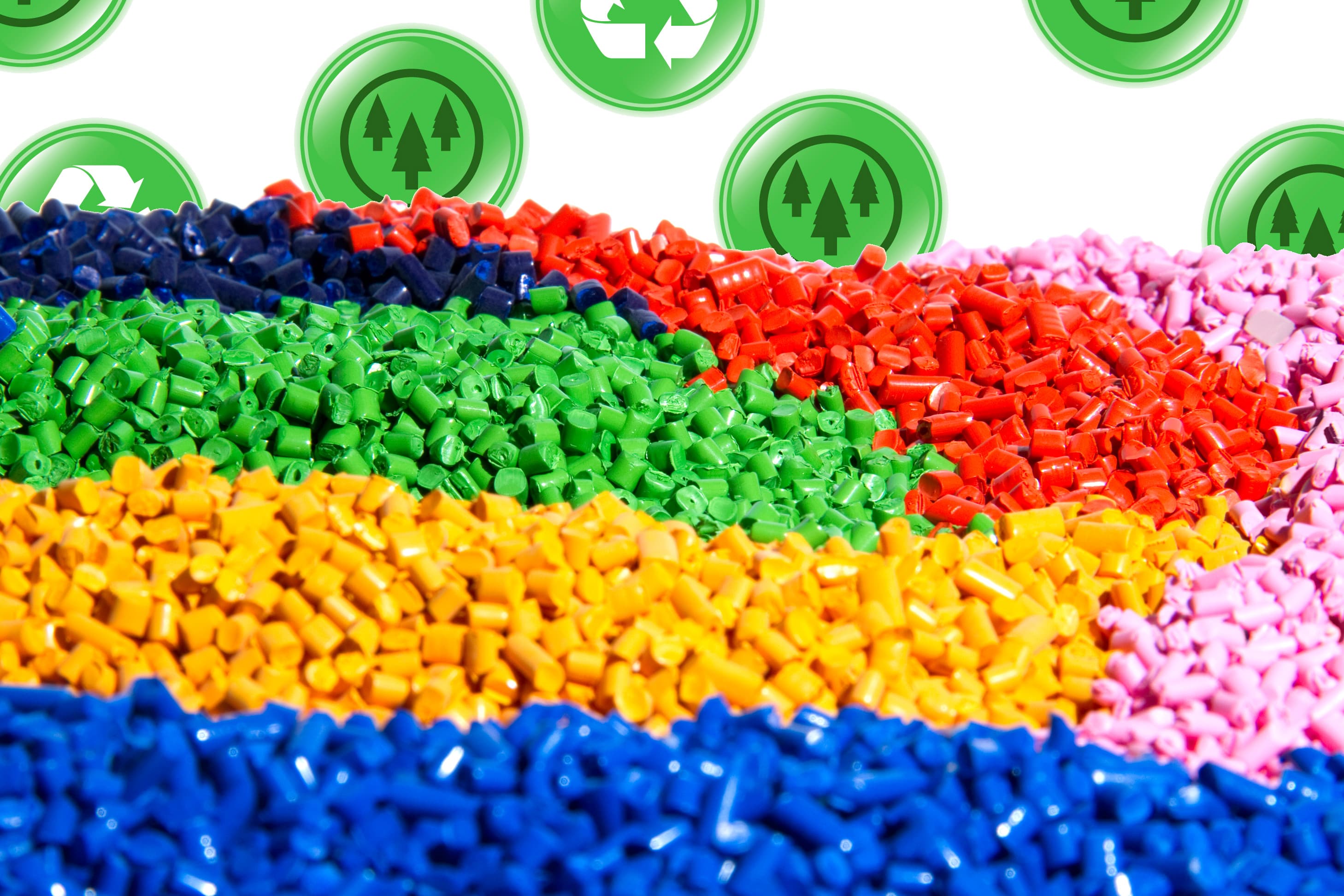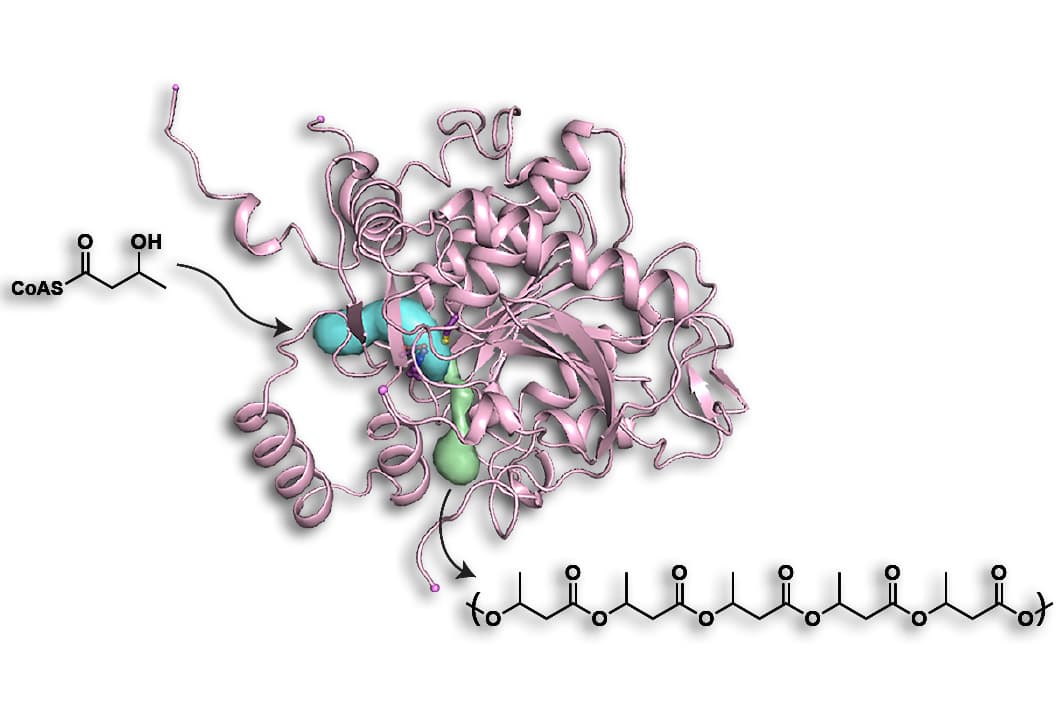Biodegradable Plastics Are No Longer A Myth – Answers MIT Researchers
Researchers at MIT have found out a way to produce biodegradable plastics. They have identified the structure of a bacterial enzyme which is essential for synthesis of biodegradable polymers. Their work has recently been compiled in the paper #-Link-Snipped-# that has been published in the Journal of Biological Chemistry.

Generally, non-biodegradable plastics are manufactured using the petroleum by-products. Using a bacterial enzyme is really an important key behind fixing the biodegradable property. The enzyme produces long chain of polymers which helps in the manufacturing of either of hard or soft plastics. They have distinct properties based on the starting material and are also biodegradable in nature. Researchers are, thus, trying to find a way for its industrial preparation and soon they will be produced on large scale, helping in making a cogent environment.

Structural Diagram Of The PHA Enzyme
The enzyme Polyhydroxyalkanoate (PHA) synthase is present in almost all bacteria and are used to produce long chain of carbon. They use these carbon chains as food supplement during extreme harsh conditions. The bacteria Cupriavidus necator, also produces these polymers at about 85% of its dry weight and thus is the main focus of their study. The significance of this enzyme is that it produces polymer composed of 30,000 units or monomers, i.e. a long chain for which researchers are looking for.
The difficulty that lies in analysing these kind of enzymes is that they can’t be crystallised easily. No crystallization means no X-ray Crystallography, which creates a problem in detecting their molecular structure and its properties. Once, the crystallization is achieved, X-ray Crystallography can expose the complete structure of the enzyme, making it easier to study and even tweak its nature. This will help in synthesizing more bio-polymers with distinct properties that might be useful in other areas of science and technology.
As states by the lead author of the paper, their team has successfully analysed the enzyme and determined its behavior. They are further trying to concatenate changes in its properties that could lead to the manufacturing of better polymers with unique properties. It’s impossible to manufacture enzyme in the laboratory, but nature has answers for everything. Using these bacteria, the researchers have achieved promising results and it’s just a matter of time for us to enter in the era of products, made of biodegradable plastics.
Source - <a href="https://news.mit.edu/2016/step-toward-biodegradable-plastics-1111" target="_blank" rel="nofollow noopener noreferrer">A step toward biodegradable plastics | MIT News | Massachusetts Institute of Technology</a> | Image Credits - #-Link-Snipped-#

MIT To Use Bacterial Enzyme To Synthesize Bio-Polymers / Plastics
Generally, non-biodegradable plastics are manufactured using the petroleum by-products. Using a bacterial enzyme is really an important key behind fixing the biodegradable property. The enzyme produces long chain of polymers which helps in the manufacturing of either of hard or soft plastics. They have distinct properties based on the starting material and are also biodegradable in nature. Researchers are, thus, trying to find a way for its industrial preparation and soon they will be produced on large scale, helping in making a cogent environment.

Structural Diagram Of The PHA Enzyme
The enzyme Polyhydroxyalkanoate (PHA) synthase is present in almost all bacteria and are used to produce long chain of carbon. They use these carbon chains as food supplement during extreme harsh conditions. The bacteria Cupriavidus necator, also produces these polymers at about 85% of its dry weight and thus is the main focus of their study. The significance of this enzyme is that it produces polymer composed of 30,000 units or monomers, i.e. a long chain for which researchers are looking for.
The difficulty that lies in analysing these kind of enzymes is that they can’t be crystallised easily. No crystallization means no X-ray Crystallography, which creates a problem in detecting their molecular structure and its properties. Once, the crystallization is achieved, X-ray Crystallography can expose the complete structure of the enzyme, making it easier to study and even tweak its nature. This will help in synthesizing more bio-polymers with distinct properties that might be useful in other areas of science and technology.
As states by the lead author of the paper, their team has successfully analysed the enzyme and determined its behavior. They are further trying to concatenate changes in its properties that could lead to the manufacturing of better polymers with unique properties. It’s impossible to manufacture enzyme in the laboratory, but nature has answers for everything. Using these bacteria, the researchers have achieved promising results and it’s just a matter of time for us to enter in the era of products, made of biodegradable plastics.
Source - <a href="https://news.mit.edu/2016/step-toward-biodegradable-plastics-1111" target="_blank" rel="nofollow noopener noreferrer">A step toward biodegradable plastics | MIT News | Massachusetts Institute of Technology</a> | Image Credits - #-Link-Snipped-#
0
